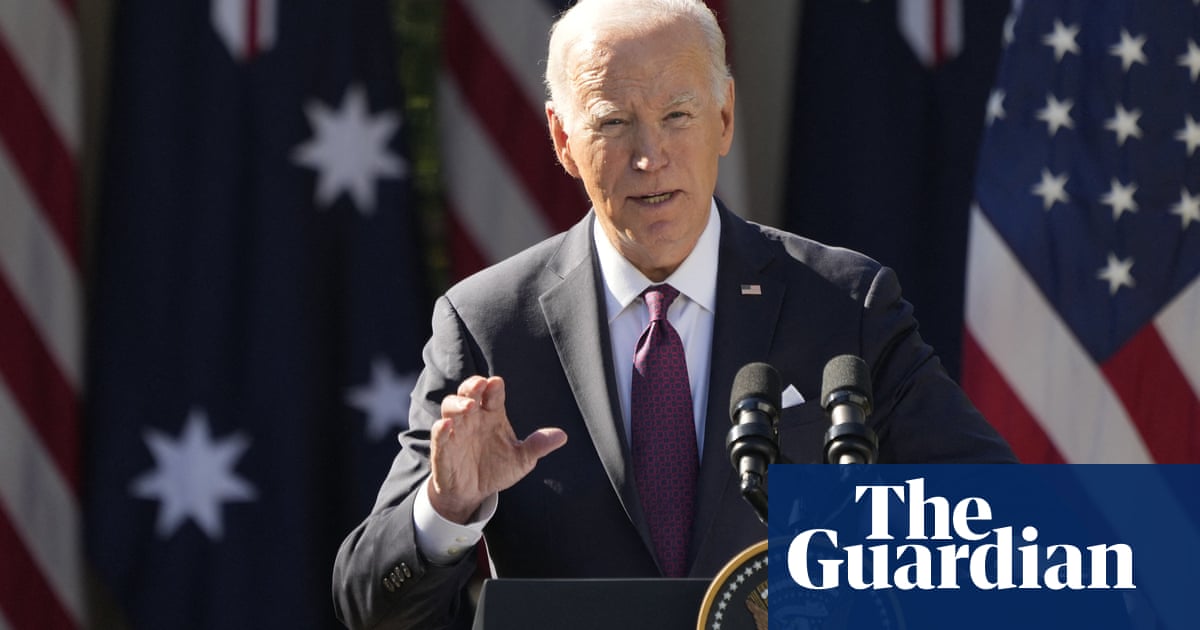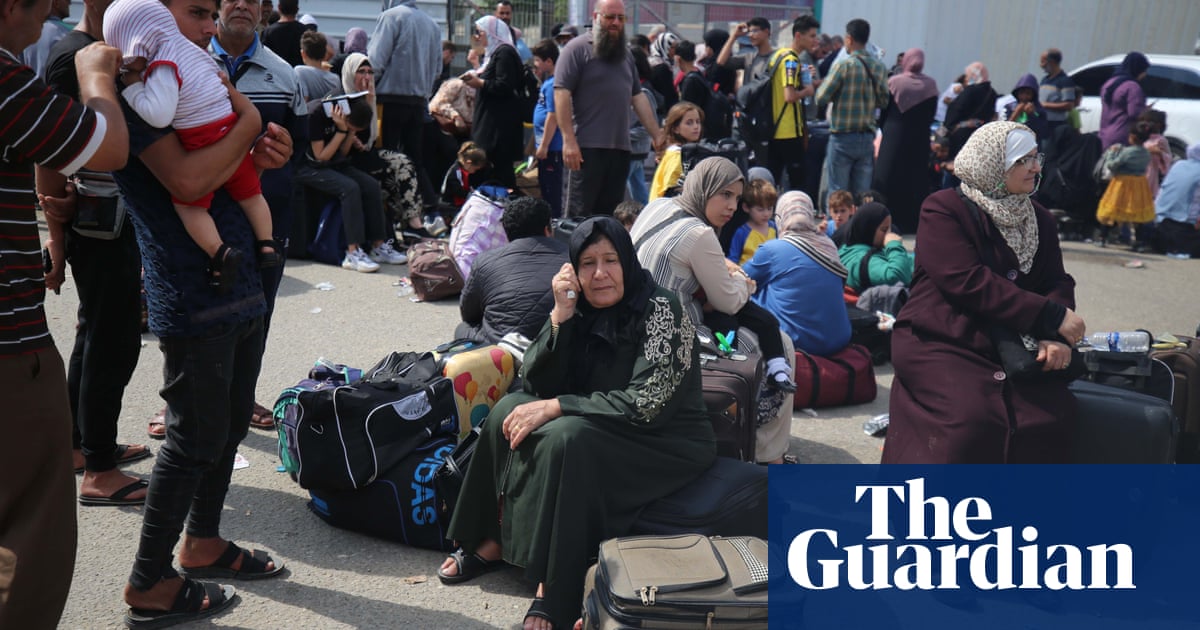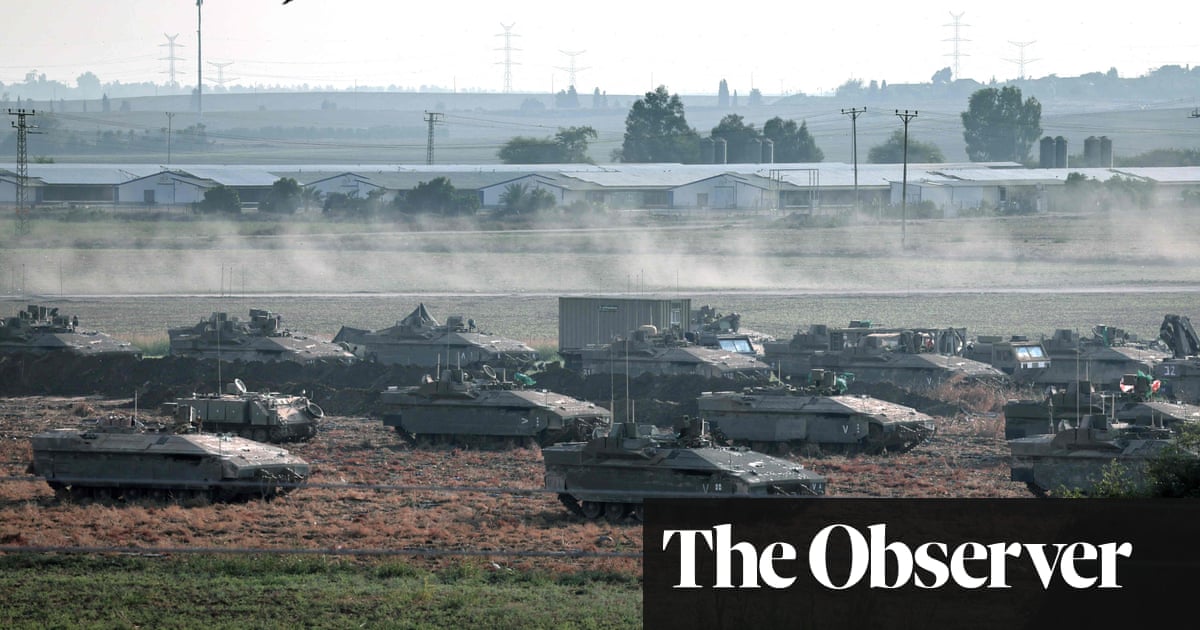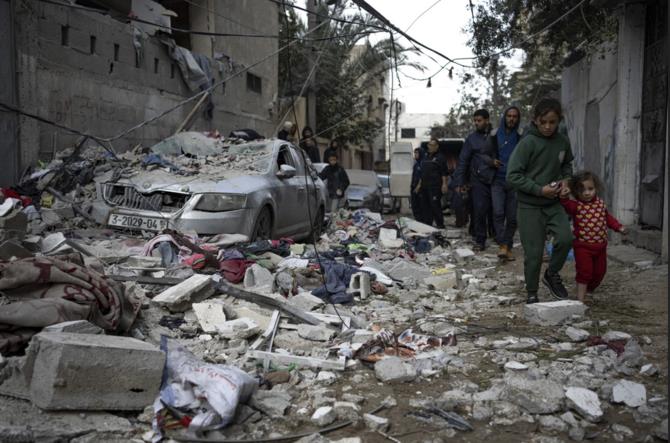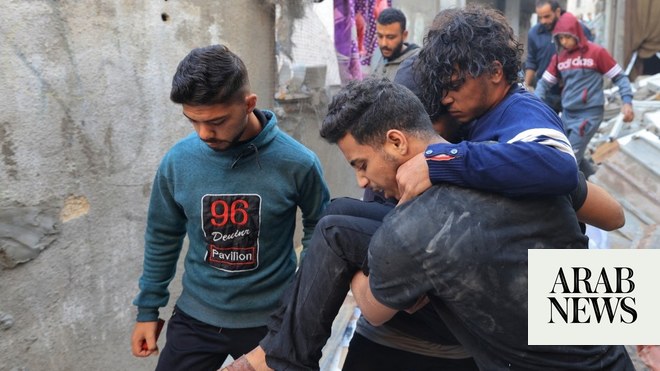
Israel’s military has delivered sweeping evacuation orders for almost half of Gaza’s 2.3 million people before an expected ground offensive aiming to eradicate the Hamas militant group after its unprecedented assault on Israel and the seizure of dozens of hostages.
In the blockaded enclave, the evacuation notice issued in the early hours of Friday sent panic through civilians and aid workers already struggling under intense Israeli airstrikes, and a blockade in which no food, fuel or medical supplies is being allowed in. The UN considers the tightened siege a war crime.
In the order, the Israeli military told the hundreds of thousands of civilians of Gaza City to flee further south into the Gaza Strip, a narrow coastal territory. Israel’s directive charged that Hamas militants were hiding in tunnels under the city.
“This evacuation is for your own safety,” the Israeli military said, in a warning it said was sent to civilians. An Israel Defence Forces (IDF) spokesperson admitted in a briefing on Friday morning that it would take time for Palestinians to follow its orders to evacuate, but did not confirm a UN report that it had set a 24-hour deadline.
Stéphane Dujarric, the spokesperson for the UN secretary general, told news outlets that UN officials working in Gaza were told by the IDF “that the entire population of Gaza north of Wadi Gaza should relocate to southern Gaza within the next 24 hours”, adding that this amounted to approximately 1.1 million people.
Dujarric said the same order applied to all UN staff and those sheltered in UN facilities – including schools, health centres and clinics. The UN agency for Palestinian refugees (UNRWA) is sheltering more than 60% of the 423,000 people displaced in recent days in the Gaza Strip.
It was not immediately clear how many people were located north of Wadi Gaza.
“The United Nations considers it impossible for such a movement to take place without devastating humanitarian consequences,” Dujarric said. “The United Nations strongly appeals for any such order, if confirmed, to be rescinded avoiding what could transform what is already a tragedy into a calamitous situation.”
Meanwhile, in the divided city of Jerusalem, people were bracing for midday prayers at the flashpoint al-Aqsa mosque compound: Israel has barred men under 60 from entering the area, according to the Jordanian Waqf, that administers the complex’s Muslim holy sites, and rightwing Jewish groups have called on Israelis to bar Palestinians from access.
Thousands of worshippers were expected to try to attend Friday prayers at the site, known to Jews as the Temple Mount, which is accessed through the Old City’s maze of narrow streets and alleyways. Clashes broke out in the Palestinian East Jerusalem neighbourhood of Wadi Joz shortly after midday, and in neighbouring Jordan, military forces stopped protesters approaching the West Bank and Israeli boundaries for planned protests.
Israel has defended its response to the Hamas massacres that killed more than 1,300 people on Saturday, with backing from Joe Biden. More than 1,500 Palestinians, a third of them children, have been killed in the retaliatory strikes, according to Gaza’s health ministry. The Israeli air force said on Thursday it had dropped 6,000 bombs on Gaza since Saturday. Hamas claimed on Friday that 13 captives were killed in Israeli strikes over the last 24 hours.
Israel’s ambassador to the UN, Gilad Erdan, said: “The UN’s response to Israel’s early warning to the residents of Gaza is shameful.” Erdan said the UN should focus on condemning Hamas and supporting Israel’s right to self-defence.
Salama Marouf, the head of the Hamas government media office, said the relocation warning was an attempt by Israel “to broadcast and pass on fake propaganda, aiming to sow confusion among citizens and harm our internal cohesion”.
The warning came after Iran’s foreign minister said the continuation of crimes against Palestinians would spark a response from “the rest of the axis”, as Israel continued bombing Gaza.
Hossein Amir-Abdollahian did not give further details, but the axis of resistance refers to an alliance among Iran, Palestinian militant groups, Syria, the Lebanese militant group Hezbollah and Shia factions in Iraq and Yemen.
Amid concerns about a widening of the conflict, Hamas called on Palestinians to rise up on Friday in protest against Israel’s bombardment of Gaza, urging them to march to al-Aqsa mosque and clash with Israeli troops in the occupied West Bank.
Human Rights Watch on Thursday accused Israel of using white phosphorus munitions in operations in Gaza and Lebanon, saying the use of such weapons puts civilians at risk of serious and long-term injury.
Asked for comment on the allegations, Israel’s military said it was “currently not aware of the use of weapons containing white phosphorus in Gaza”. It did not provide comment on the rights watchdog’s allegations of their use in Lebanon.
White phosphorus munitions can legally be used on battlefields to make smoke screens, generate illumination, mark targets or burn bunkers and buildings, but it is considered an incendiary weapon under Protocol III of the convention on the prohibition of use of certain conventional weapons. The protocol prohibits using incendiary weapons against military targets located among civilians, although Israel has not signed it and is not bound by it.
A ground offensive in Gaza is likely to bring even higher casualties on both sides in brutal house-to-house fighting. Israel has mobilised an unprecedented 360,000 reservists, massed additional forces near the strip, and evacuated tens of thousands of nearby residents.
Scores of Israeli and foreign hostages were taken back to Gaza; Israel said it had identified 97 so far. Israeli ministers has said there will be no humanitarian break to its siege of the Gaza Strip until all its hostages are freed, amid growing concern over dwindling water, food and fuel supplies.
UN experts have condemned the Israeli bombardment as “collective punishment”, which is a war crime.
Late on Thursday, Israel’s parliament approved Benjamin Netanyahu’s emergency unity government, including a number of centrist opposition lawmakers, with the prime minister warning of “difficult days ahead” but determined to achieve “complete victory”.
Lt Col Richard Hecht, an Israeli military spokesperson, told reporters that forces were preparing for a ground assault in Gaza but that the political leadership had not yet ordered one.
Israel’s bombing campaign has destroyed 752 residential and non-residential buildings, comprising 2,835 housing units, the UN says, citing numbers from the Gaza ministry of public works and housing. Another nearly 1,800 housing units have been damaged beyond repair and rendered uninhabitable, it said.
The US has pledged to send more arms to Israel before the expected ground assault, as Antony Blinken, the US secretary of state, arrived in Tel Aviv to offer US backing to Israel “today, tomorrow, every day”.
Blinken is expected to meet the Palestinian Authority president, Mahmoud Abbas, on Friday as well as visit key US allies in Qatar, Saudi Arabia, Egypt and the United Arab Emirates – some with influence over Hamas, an Islamist group backed by Iran.
Blinken is to be joined in Israel on Friday by the US defence secretary, Lloyd Austin,, who also planned to meet Netanyahu. The US military is placing no conditions on its security assistance to Israel, Austin said earlier, adding Washington expected Israel’s military to “do the right things” in its war against Hamas.
The presidents of the European Commission and parliament will visit Israel on Friday to “express solidarity with the victims of the Hamas terrorist attacks, and meet with Israeli leadership”.




